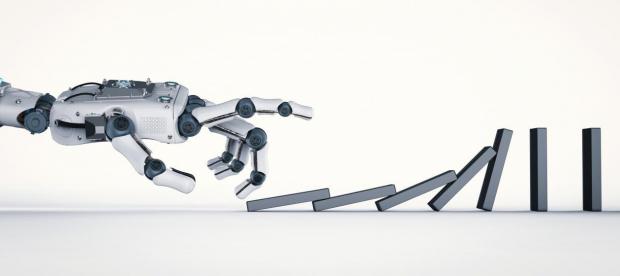
Breaking News
 $26M Frozen on Blockchain - With One Click
$26M Frozen on Blockchain - With One Click
 Italy are on national strike shutdown rejecting digital enslavement...
Italy are on national strike shutdown rejecting digital enslavement...
 The following U.S. states are currently using the rebranded "Reporty Homeland Security" so
The following U.S. states are currently using the rebranded "Reporty Homeland Security" so
 NATO Chief Urges Europe To Prepare For Long-Term World War With Russia, China, Iran & North Korea
NATO Chief Urges Europe To Prepare For Long-Term World War With Russia, China, Iran & North Korea
Top Tech News
 HUGE 32kWh LiFePO4 DIY Battery w/ 628Ah Cells! 90 Minute Build
HUGE 32kWh LiFePO4 DIY Battery w/ 628Ah Cells! 90 Minute Build
 What Has Bitcoin Become 17 Years After Satoshi Nakamoto Published The Whitepaper?
What Has Bitcoin Become 17 Years After Satoshi Nakamoto Published The Whitepaper?
 Japan just injected artificial blood into a human. No blood type needed. No refrigeration.
Japan just injected artificial blood into a human. No blood type needed. No refrigeration.
 The 6 Best LLM Tools To Run Models Locally
The 6 Best LLM Tools To Run Models Locally
 Testing My First Sodium-Ion Solar Battery
Testing My First Sodium-Ion Solar Battery
 A man once paralyzed from the waist down now stands on his own, not with machines or wires,...
A man once paralyzed from the waist down now stands on his own, not with machines or wires,...
 Review: Thumb-sized thermal camera turns your phone into a smart tool
Review: Thumb-sized thermal camera turns your phone into a smart tool
 Army To Bring Nuclear Microreactors To Its Bases By 2028
Army To Bring Nuclear Microreactors To Its Bases By 2028
 Nissan Says It's On Track For Solid-State Batteries That Double EV Range By 2028
Nissan Says It's On Track For Solid-State Batteries That Double EV Range By 2028
How humans will lose control of artificial intelligence

So they program it to do something simple and non-threatening: make paper clips. They set it in motion and wait for the results — not knowing they've already doomed us all.
Before we get into the details of this galaxy-destroying blunder, it's worth looking at what superintelligent A.I. actually is, and when we might expect it. Firstly, computing power continues to increase while getting cheaper; famed futurist Ray Kurzweil measures it "calculations per second per $1,000," a number that continues to grow. If computing power maps to intelligence — a big "if," some have argued — we've only so far built technology on par with an insect brain. In a few years, maybe, we'll overtake a mouse brain. Around 2025, some predictions go, we might have a computer that's analogous to a human brain: a mind cast in silicon.
After that, things could get weird. Because there's no reason to think artificial intelligence wouldn't surpass human intelligence, and likely very quickly. That superintelligence could arise within days, learning in ways far beyond that of humans. Nick Bostrom, an existential risk philosopher at the University of Oxford, has already declared, "Machine intelligence is the last invention that humanity will ever need to make."

 Carbon based computers that run on iron
Carbon based computers that run on iron

